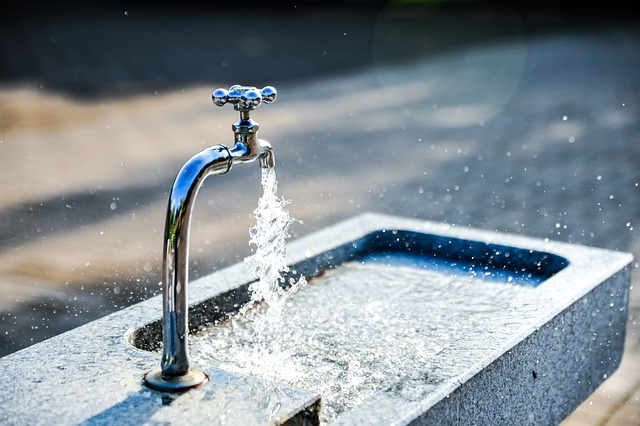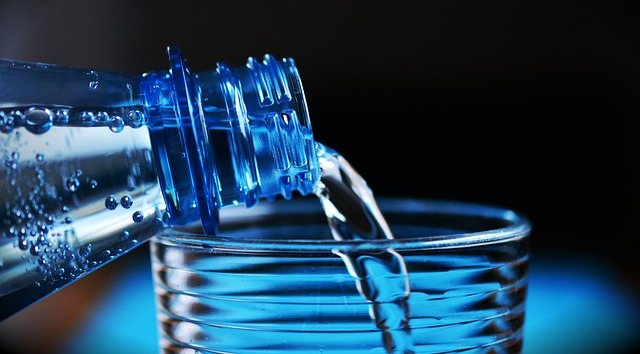Yes, tap water in Lisbon is safe to drink.
Lisbon, with its charming streets, iconic trams, and captivating fado melodies, has another tale to tell—one that flows right from its taps.
As a traveler, you might have pondered over the safety, taste, and traditions surrounding the tap water in the places you visit.
In this article, we'll explore the story behind Lisbon's tap water, drawing from personal experiences and encounters during a memorable stay in Portugal's capital.

Can I drink tap water in Lisbon?
When I visited Lisbon, one of the first things I wanted to find out was if I could drink the tap water without any worries. Well, here's the good news: the tap water in Lisbon is absolutely safe for human consumption.
In fact, I gulped down several glasses every day during my stay, and I never once had a problem. Did you know that Portugal has very strict rules about their water?
They're right up there with some of the best in Europe. I've been to many places, and trust me, Lisbon's tap water quality ranks high on my list of "safe to drink" spots.
The Quality of Lisbon's Tap Water
Alright, so the tap water is safe, but how's the quality? I'm glad you asked. Lisbon is a safe city to visit and the tap water here doesn’t just meet safety standards; it tastes pretty good too.
During my strolls around the city, I often saw locals filling up their plastic water bottles, directly from public fountains. These aren’t just ordinary fountains, they're old and historic, like the ones in the Rossio Square.
Now, some travelers, like my friend Jane, are a bit sensitive when it comes to water taste. Different places, different tastes, right?
But even Jane commented on how fresh the water tasted. There are certain minerals, like calcium and magnesium, that can make water taste different, and to some, it tastes bad. But in Lisbon, it just felt balanced.
The Water Treatment Process
So, how does the water get to be this good? Let me share a little secret. Lisbon has a special way of treating its water. First, the water is collected from rivers like the Tagus.
Then, it goes through some fancy steps in the treatment plants. There are filters, like big sieves, that trap dirt and other yucky stuff.
Next, they add a tiny bit of chlorine. Don’t worry, it’s safe. The chlorine makes sure any bad germs are gone. However, this taste is a little too strong for some people, and they avoid drinking the water. Also, if someone is sensitive to the taste of chlorine, they should avoid drinking tap water in Lisbon. Note that chlorine isn't generally bad in these small quantities, though.
Imagine it as a superhero fighting off the water villains! After that, they do some tests, check everything twice, and voilà! The water is sent to our taps, fresh and clean.
The Water Quality Standards
But wait, there's more. Lisbon doesn't just make sure the water is clean. They have rules to make sure it stays super clean.
In fact, there are over 50 tests (that's a lot!) they do on the water. These tests check for things like metals, bacteria, and chemicals. For example, they look for lead and copper, just to name a couple. And guess what?
The results are great. Almost every time, the water passes with flying colors. That means it’s not just safe, it’s really, really good. It's like when I was in school, and I wanted an A+ on my test. Well, Lisbon's water pretty much gets an A+ every time!
So, next time you're in Lisbon, fill up your bottle without a second thought. Not only is the water safe, but it's also top-notch quality.
Is There a Difference in Taste?
Yes, there is a difference in taste but it's not a bad taste.
Ah, the taste of Lisbon tap water. One of the things many of us wonder about when traveling is whether the tap water will taste different.
Let me tell you about my experience in Lisbon. After trying tap water from different cities like New York, Paris, and Tokyo, there's definitely a unique taste in every place.
In Lisbon, the water has its own special flavor. It's different, but in a good way. It tastes clean and refreshing. Some places, like London, have a sort of "metallic" taste because of things like pipes. Lisbon? Not so much.
But, remember, everyone's taste buds are a little different. For instance, my friend Mike said the water reminded him of the bottled water brands he drinks at home.
Meanwhile, my sister felt it was a very refreshing glass, a tad earthy, kind of like the water you get from a fresh mountain stream. The point is, while it might taste a bit different from what you're used to, it's pleasant and super drinkable.
The Hardness of Lisbon's Tap Water
Let's talk about "hard" and "soft" water. These terms are about minerals in the water, like calcium and magnesium. Places with more minerals have "hard" water.
Ones with fewer? That's "soft" water. In Lisbon, the water is kind of in the middle. Not too hard, not too soft. Perfect balance!
I remember washing my hair and noticing how soft it felt afterward. That's one of the signs! Hard water can sometimes make your hair feel kind of rough, like an old broom.
But in Lisbon, it was like using those fancy hair products. Super nice! If you're curious, the hardness level is around 13-17 dH. Think of it like a score. Some cities have scores of 30 or even 50. So, 13-17? Pretty good!
The Chlorine Content of Lisbon's Tap Water
Alright, time to chat about chlorine. It's that stuff they put in water to keep it clean. Some cities add a lot, and sometimes you can really taste it.
Like when you drink water after swimming in a pool. In Lisbon, though, they add just a little bit. Enough to zap away the bad germs, but not so much that it changes the taste.
I used to live in a city where you could smell the chlorine from the tap, especially in the mornings. In Lisbon, that wasn't the case. I didn't smell it or taste it.
If you're thinking in numbers, the chlorine content is usually below 0.5 mg/L. That's really low. To give you an idea, some places have numbers like 1 or 2 mg/L. So, Lisbon's water? It's a bit like goldilocks - just right!
In conclusion, the tap water in Lisbon was a pleasant surprise. Safe, tasty, and balanced. If you ever get the chance to visit, give it a try! Cheers to clear, refreshing water.
What to Do If You Don't Like the Taste of Lisbon's Tap Water
So, you're in beautiful Lisbon, and while everyone's raving about the tap water, your taste buds say, "Nope, not for me." That's okay! Everyone's taste is unique.
Like how I love pineapple pizza, but my buddy Steve? He can't stand it. It's all about personal preference. If you find yourself not vibing with Lisbon's tap water flavor, don't fret! There are simple solutions.
Get a Water Filter
When I was backpacking in different cities, I always carried a portable water filter. It's a game-changer, let me tell you! Water filters are these cool gadgets that can change the taste of water. They remove tiny things like chlorine or minerals. It's like giving the water a little spa treatment!
In Lisbon, I met a fellow traveler, Maria. She had a filter jug. Every morning, she'd fill it up, let the water pass through the filter, and bam! Fresh-tasting water ready to go.
There are different types, like carbon filters and ceramic ones. For instance, carbon filters are great for catching chlorine. They're like little sponges, soaking up the stuff you don't want.
If you're staying longer, consider getting a filter for the tap. It screws right on and filters the water as it comes out. Pretty nifty, huh? These filters usually cost around 20 to 50 euros, and trust me, they're worth it.
Drink Bottled Water
Now, here's the easiest solution: bottled water. Lisbon has tons of stores selling bottled water. I've seen big brands and local ones.
They're everywhere: supermarkets, corner stores, and even vending machines. Prices? Super affordable. I remember getting a big 1.5-liter bottle for just 1 euro. That's like buying a candy bar!
Bottled water comes in handy when you're out exploring places like Belém Tower or Alfama. Just grab plastic or glass bottles, throw it in your bag, and you're set for the day.
Remember, though, to always recycle. Lisbon has many recycling bins around. Blue ones are for plastics, like water bottles.
In the end, while Lisbon's tap water is top-notch for many, it's okay if it's not your cup of tea. With filters and bottled water options, you're covered.
So, here's to staying hydrated and enjoying your time in this amazing city! Cheers!

Tips for Drinking Tap Water in Lisbon
When I first touched down in Lisbon, I was super excited to dive into the local culture, and yes, even try the tap water. Over my stay, I picked up some handy tips for anyone keen on sipping from the tap:
-
Stay Hydrated: Lisbon can get pretty warm, especially in the summer months. Always remember to drink up! Carrying a refillable water bottle is a lifesaver. I got a cool one with colorful tiles, just like the streets of Lisbon.
-
Give It a Moment: When you first turn on the tap, let it run for a few seconds. It helps get rid of any water that's been sitting in the pipes. This was a tip I learned from a local named João.
-
Chill It: If you're not a fan of room temperature water, pop your bottle in the fridge for a bit. Cold water on a hot day? Perfect!
Background on Lisbon's Tap Water
Now, let's dive a bit deeper into the tale of Lisbon's tap water. A long time ago, this vibrant city established a grand system of aqueducts and reservoirs, a testament to human ingenuity.
The main goal? To supply fresh water to its residents. This water network is a part of Lisbon's legacy. The majestic Águas Livres Aqueduct is a must-visit.
Over time, Lisbon's authorities have continuously upgraded their water treatment methods to international water quality standards.
Today's tap water goes through rigorous tests, filtering processes, and quality checks, by departments like the Waste Services Regulation Authority.
Drinking tap water in Lisbon is like experiencing history fused with modern science—a beautiful blend indeed!
Source of Lisbon's Water
Let's talk about where Lisbon gets its water. This city's tap water doesn't just magically appear. Nope! It comes from the Tagus and Sorraia rivers. These rivers are big and important, kind of like how the Nile is for Egypt.
When I was taking a boat ride on the Tagus, the captain told me how this river has been Lisbon's lifeline for centuries.
Ships, fish, and yes, deliciously fresh water. After the water is taken from the rivers, it goes through cleaning and filtering. Only then does it arrive in our taps, ready for a thirsty traveler like me.
Risks of Drinking Tap Water in Portugal
Now, you might be wondering: "Are there any risks with drinking tap water in Portugal?" Here's the scoop. Portugal has strict rules and checks in place. They're like the lifeguards of water, making sure everything's safe.
During my travels, I met Anna, a water expert. She told me that while Portugal's water is generally safe, there's always a teeny, tiny chance of things like bacteria.
Just like in any other country. But remember, the chances are super low. Think of it as the chance of finding a four-leaf clover in a field. Rare, right?
That said, if you have a very sensitive stomach or you're just being extra careful, following the tips I shared earlier can be helpful. And if you ever feel unsure, there's always bottled water.
To wrap it up, drinking tap water in Lisbon was a breeze for me. With its rich source and tight checks, you can sip without a worry! Cheers to that!
Drinking Water in Restaurants
Dining in Lisbon offers a delightful mix of flavors, sounds, and yes, water choices. On most menus, you'll notice options like "água com gás" (sparkling) and "água sem gás" (still).
I felt adventurous and tried both during my trip. They come bottled, and yes, there's a price tag. But, if you're watching your euros, tap water is your friend.
Just make sure to specify you'd like tap water. Most restaurants won't bat an eyelid. But occasionally, you might stumble upon an eatery that's more keen on selling bottled than drinkable tap water. It's their choice, and there's no harm in it. Enjoy the meal and the ambiance!
Why Don't People in Portugal Drink Tap Water?
Portugal's tap water mystery intrigued me. If it's so safe, why aren't the locals drinking it regularly? I found my answer one sunny afternoon in a Lisbon park.
Sofia, a local with bright eyes and stories galore, explained that many older generations had reservations about tap water.
Way back, the tap water wasn't always as reliable. Hence, bottled water became the go-to. Like passing down a family recipe, the bottled water habit went from grandparents to parents and then to kids. Now, it's less about safety concerns and more about tradition and habit.
Conclusion
Lisbon is not just about its historic sites, sun-kissed beaches, or tantalizing pastries; it's also about understanding the essence of everyday life, which includes something as simple as its tap water.
As we've journeyed through the ins and outs of drinking water in this beautiful city, it becomes evident that Lisbon's tap water is a blend of history, culture, and rigorous science.
Whether you choose to sip from the tap, indulge in bottled water, or simply want to know more, we hope this guide has quenched your thirst for knowledge.
FAQs
-
Is Lisbon's tap water safe for tourists to drink?
Absolutely! Lisbon's tap water undergoes stringent testing and meets international safety standards. Whether you're a local or a visitor, it's perfectly safe to drink.
-
Do restaurants in Lisbon serve tap water?
Yes, many restaurants in Lisbon will serve tap water if requested. However, it's common for eateries to provide bottled water, either still or sparkling, which comes at a cost.
-
Why do some locals prefer bottled water over tap?
While the tap water is safe, some locals have grown up with a tradition of drinking bottled water, passed down from older generations. It's more about habit than health concerns.
-
Are there any notable landmarks related to Lisbon's water supply?
Certainly! The Águas Livres Aqueduct is a historic structure that was instrumental in supplying water to Lisbon. It stands as a testament to the city's commitment to providing clean water to its residents.
-
Can I use tap water for cooking in Lisbon?
Yes, you can use the Portugal tap water. It's not only safe to drink but also to use in cooking, making ice cubes, or brewing a cup of tea or coffee.
